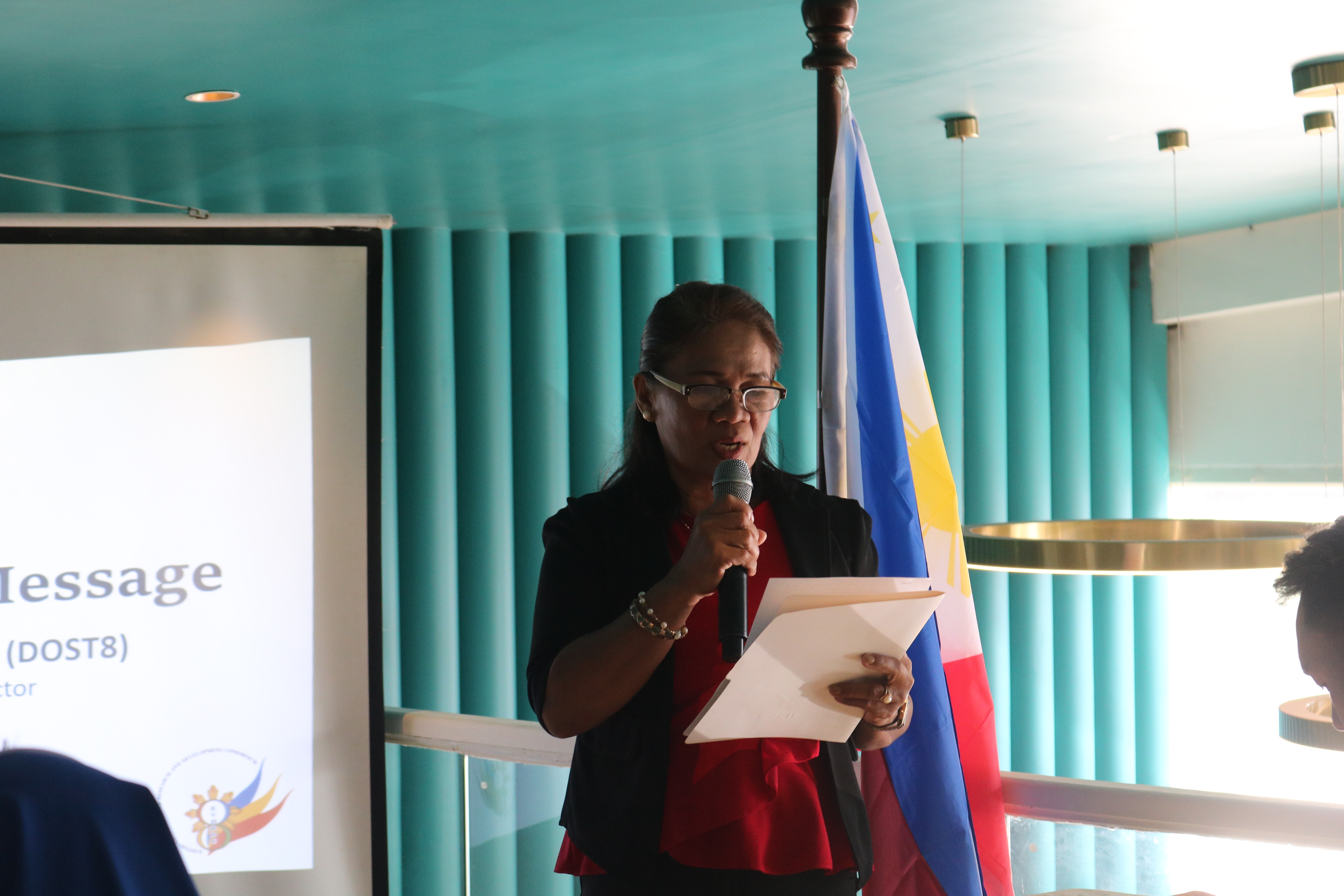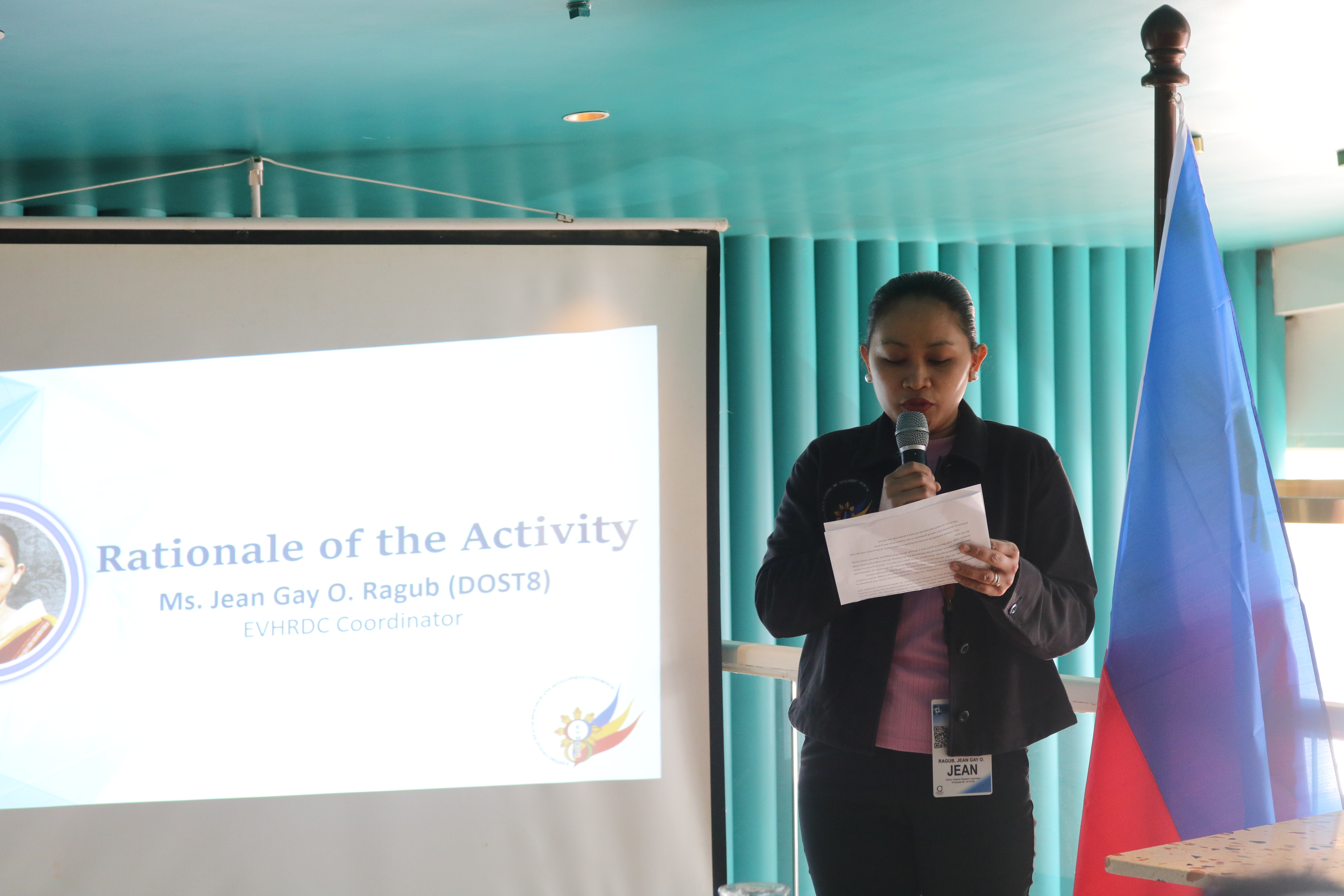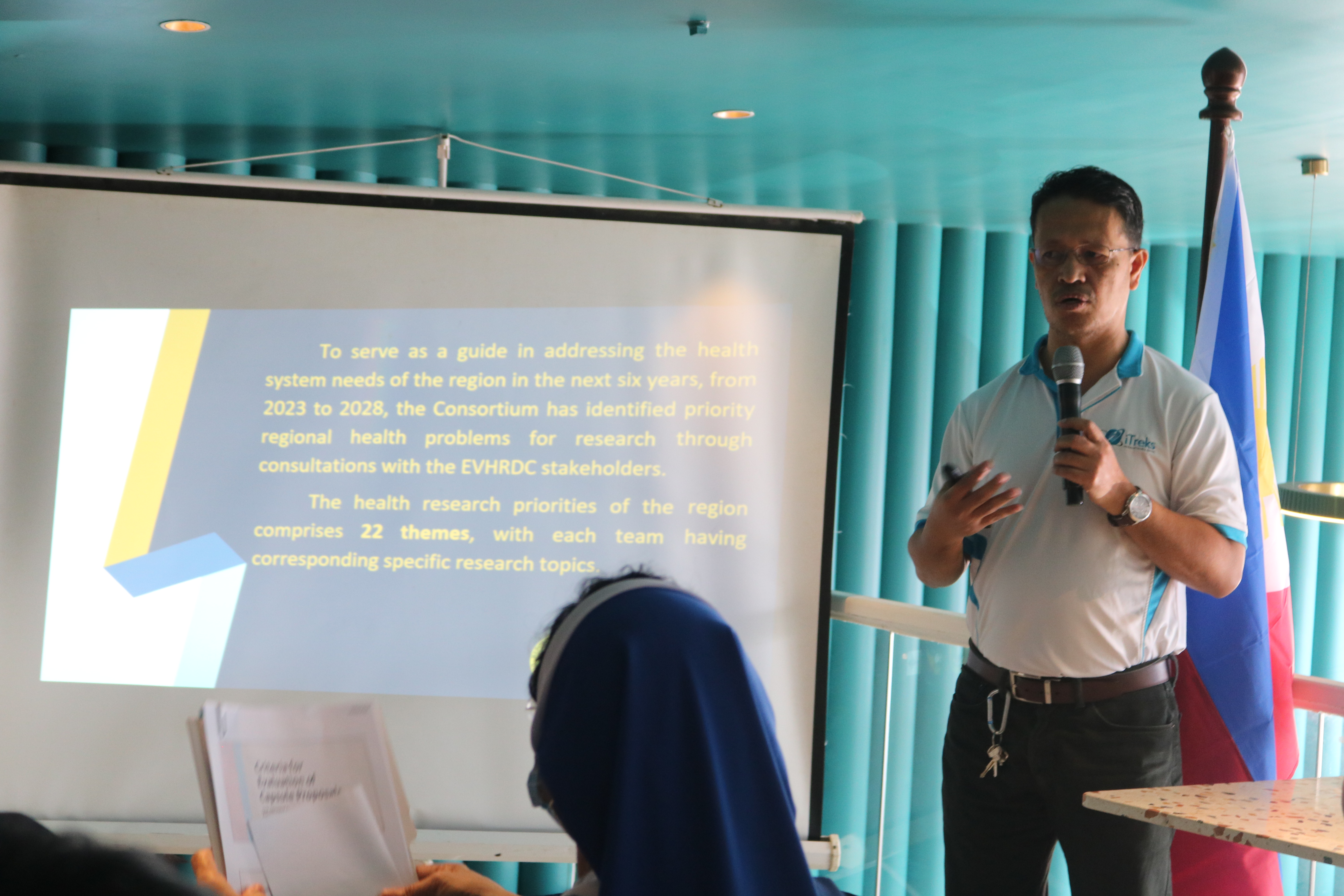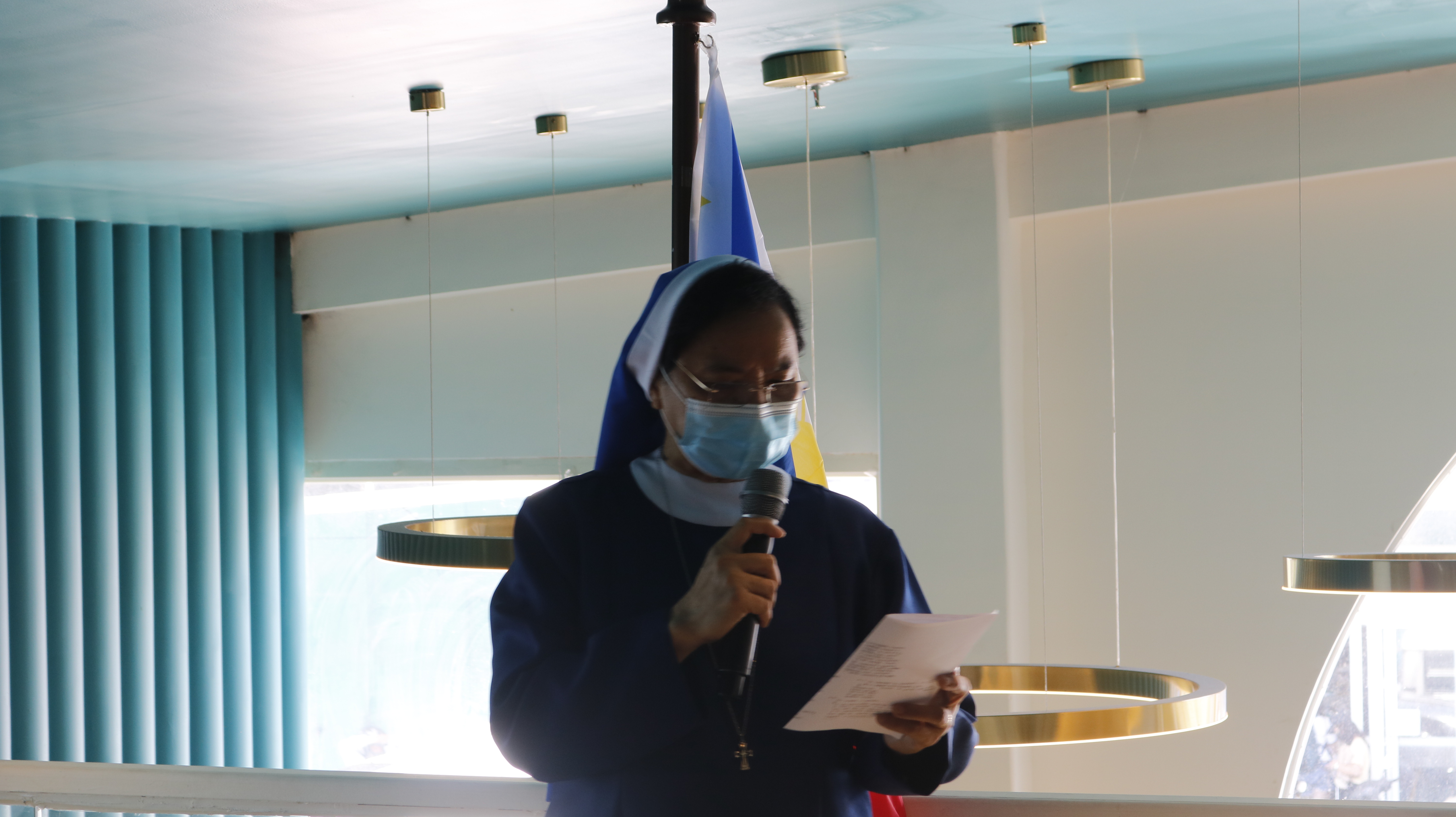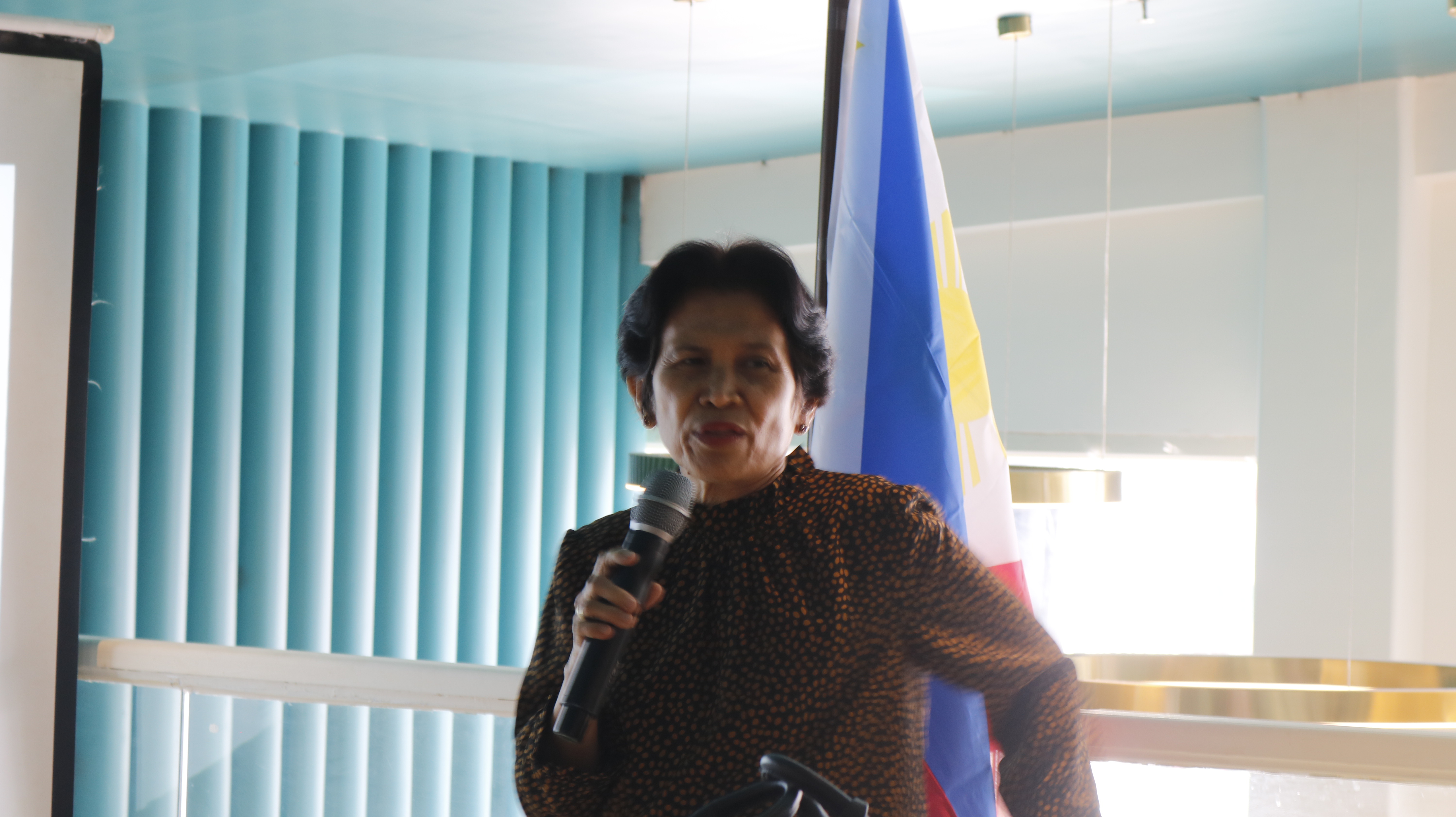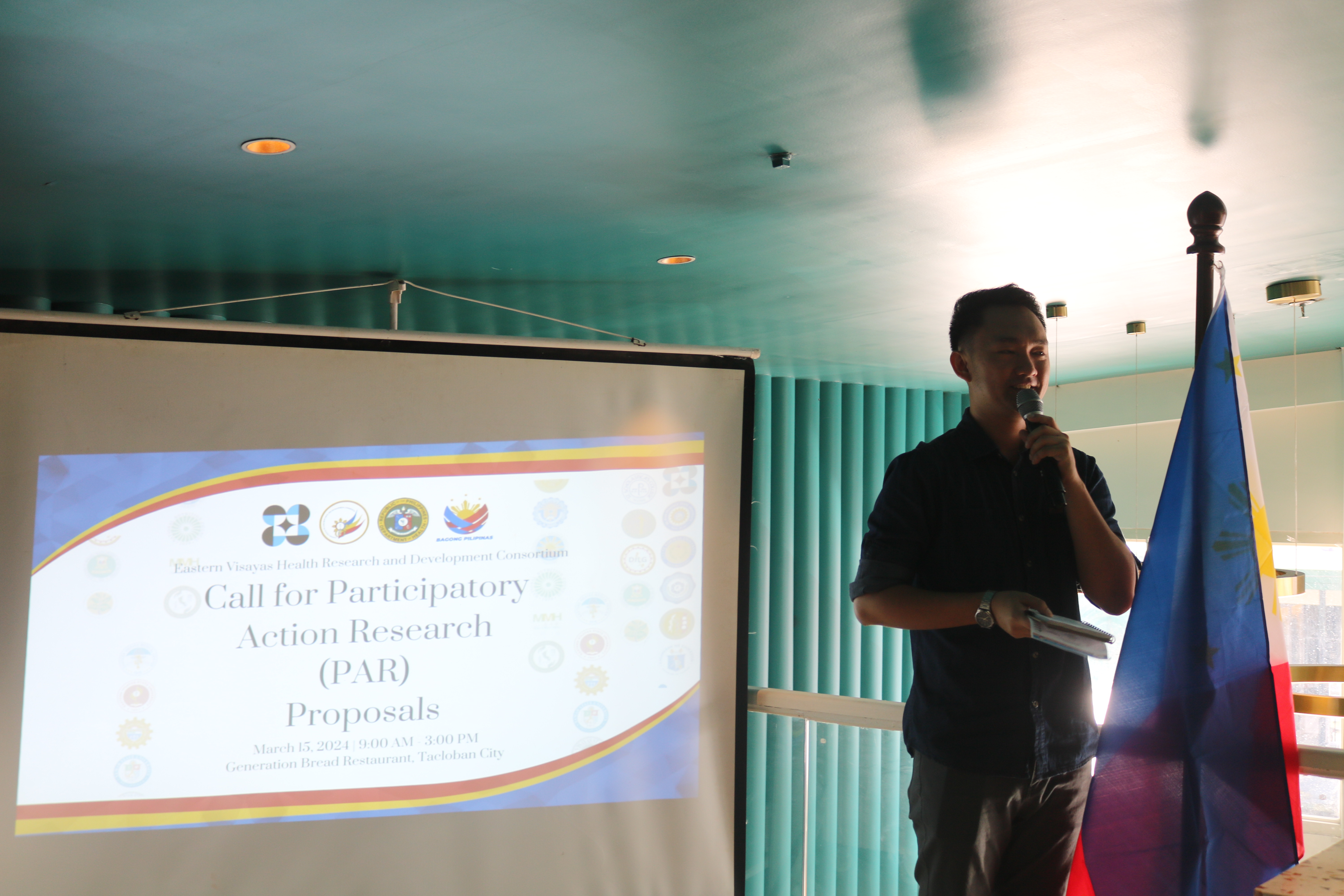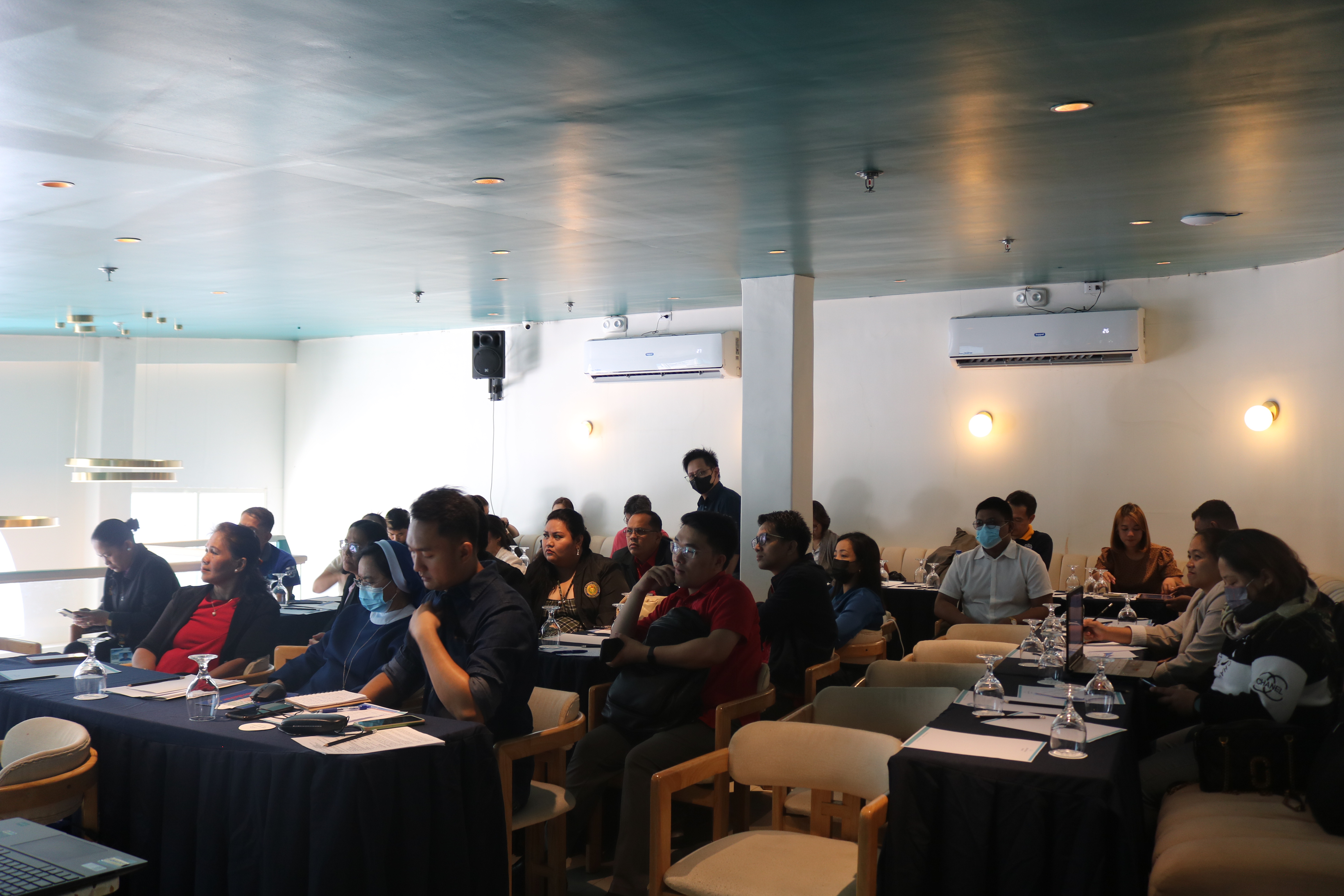As part of its commitment to continuously enhancing the region's health research and development, the Eastern Visayas Health Research and Development Consortium (EVHRDC) recently held an activity for this year's Call for Participatory Action Research (PAR) Proposals. It took place on March 15, 2024 at Generation Bread in Tacloban City. The activity was spearhead by the Research Management Committee and was participated by researchers from EVHRDC’s member state universities and colleges including LNU, SSU, NwSSU, UPTC, SLSU, BiPSU, and EVSU Ormoc.
Dr. Lucia P. Dauz, the consortium director, began the activity formally with her welcome remarks. She highlighted that this is one of the Research Management Committee's (RMC) most important activities, with the aim of generating possible funding, specifically for participatory action research (PAR). She also provided a brief overview of the process for funding and monitoring funded projects until they are completed.
Ms. Jean Gay O. Ragub, EVHRDC Coordinator, explained the rationale of the activity as well as a brief outline of the program. She then urged everyone to engage in the open forum, with the hope that the researchers will submit a capsule proposal following the event.
The presentation started with a discussion of the 2023-2028 Regional Unified Health Research Agenda (RUHRA), headed by Mr. Leonido P. Olobia, RMC Chair. Through consultations with the EVHRDC stakeholders, the consortium has identified priority regional health problems for research, which comprises 22 themes, with each theme having corresponding specific research topics. Mr. Olobia then provided a brief orientation about PAR. He emphasized the significance of PAR in health policy and systems, and that all partner communities, CSOs, POs, GOs, LGUs, and academic or research institutions may be involved in its implementation. He also explained the three elements of PAR, namely: People, Power, and Praxis.
Sr. John Mary P. Fornillos, an RMC member, presented the criteria for the evaluation of capsule proposals. There are eight criteria included, and each criterion is based on a rating system. Proponents of shortlisted capsule proposals will be requested to submit the full-blown version of the proposal..
An overview of ethics in research was presented by Dr. Jane R. Borrinaga, Ethics Review Committee Chair. Her presentation covered the following topics: What ethical clearance is; Why it is necessary; When and how to obtain it, and a short introduction of the EVHRDC-ERC and its functions. Dr. Borrinaga additionally discussed the requirements, timelines, and process for reviewing proposals submitted to the EVHRDC-ERC.
This was followed by another presentation of Dr. Lucia P. Dauz on the administrative aspect of funded research. Included in her presentation are identifying the steps in developing a research timetable and the important items for inclusion in the research budget; creating a Gantt chart; and the process of applying thePCHRD RRF guidelines in developing the budget for their proposed research, which was emphasized among the topics she presented. She also presented sample line-item budgets in which the items in the personal services, MOOE, equipment outlay, and indirect cost were emphasized.
The activity concluded with announcements made by Mr. Jeremy V. Jusay, RMC Secretariat, who stated that the RMC will conduct an evaluation of capsule proposals on April 19 once they are received by April 15, the deadline for submission. Researchers with shortlisted proposals will be invited to attend a PAR training in April. Following that is a Research Proposal Enhancement Workshop (RPEW) for the researchers to complete and finalize their full-blown proposals.


